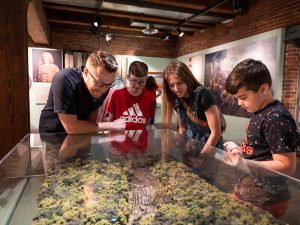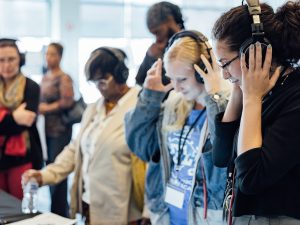
History Center Field Trips
Bring history to life for your students.
At the History Center, we offer field trips that invite students to explore, ask questions, and connect with history in hands-on, age-appropriate ways.
Plus, thanks to the Kamin “Free for Kids” Initiative, all K–12 student groups can now visit the museum for field trips, free of charge!
Guided Field Trips
Led by museum educators, guided field trips use the History Center’s rich collection of primary sources to spark inquiry, discussion, and discovery.
Self-Guided Field Trips
Perfect for educators who want to tailor the experience to their own curriculum, self-guided field trips offer groups the freedom to explore the museum at their own pace.
Custom Field Trips & Experiences
Work with History Center educators to design a unique, curriculum-connected experience that meets the needs of your classroom.
Field Trip FAQ
Whether you’re a seasoned pro or booking your first visit, here’s everything you need to know to make the most of a field trip to the Heinz History Center.
Parking and Bus Directions
If arriving by car or van, please visit our parking page for more information on parking.
If arriving by bus or motor coach, please use the bus pull-off location on Smallman Street if available or pull in front of the History Center’s main entrance to unload.
Accessibility
One personal aide is admitted free-of-charge for each visitor in need of assistance during a History Center visit. Please indicate the number of aides attending with your group when you reserve your tour. Aides will be included in the 10-person limit for guided and self-guided visits. Sign language interpreters are available for tours and programs with one-week notice to ensure availability.




